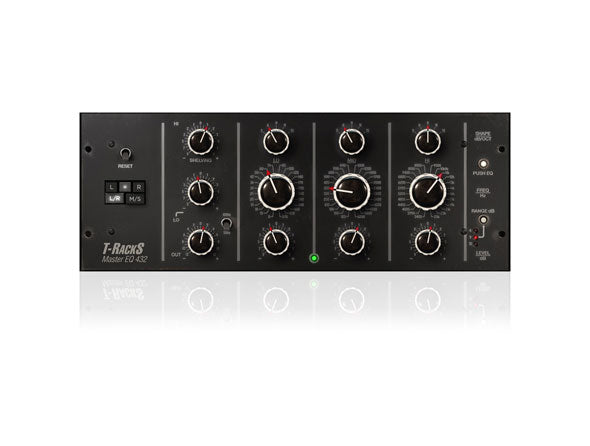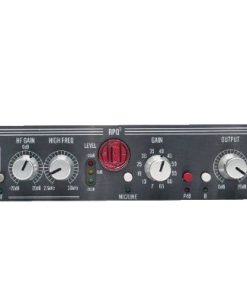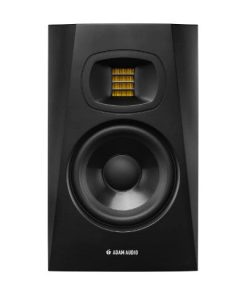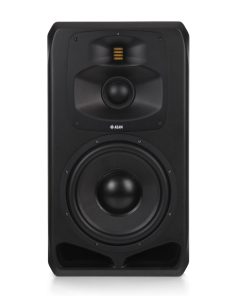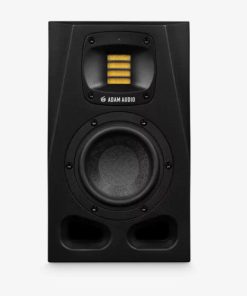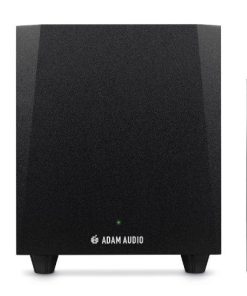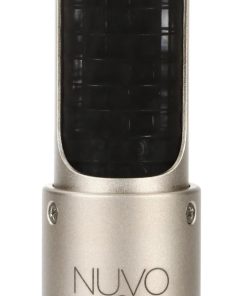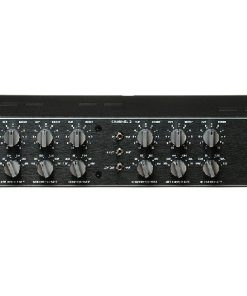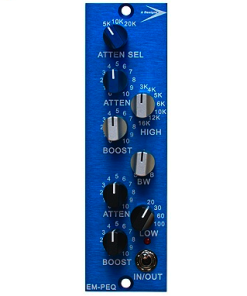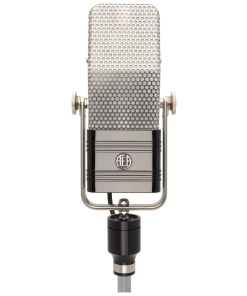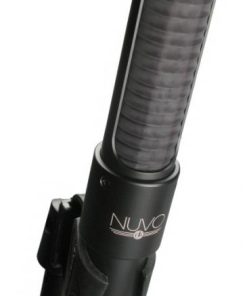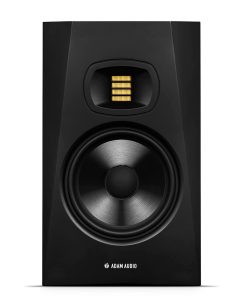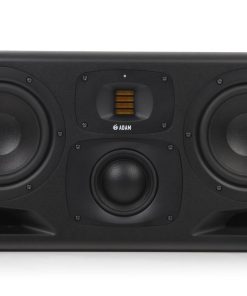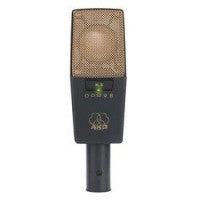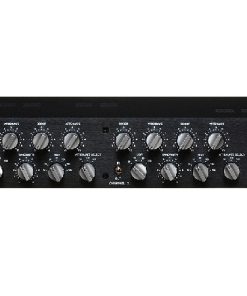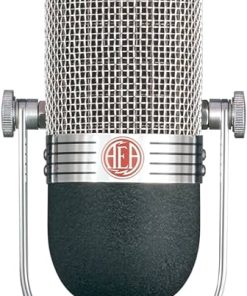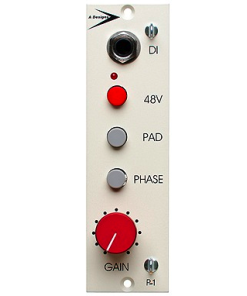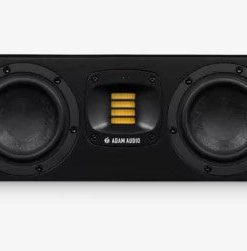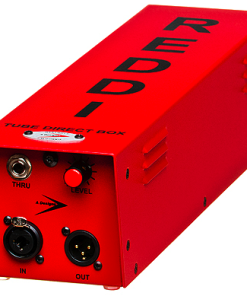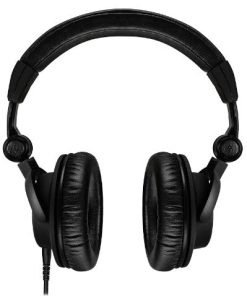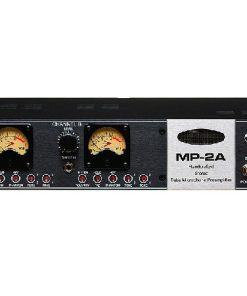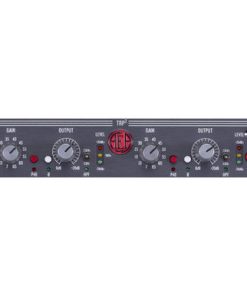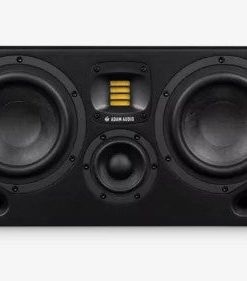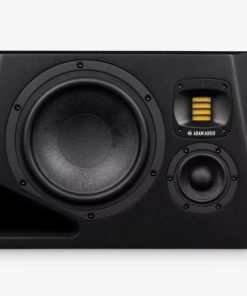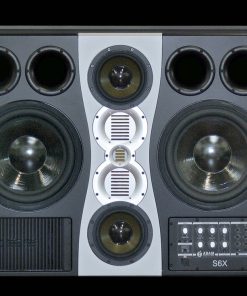IK Multimedia Master EQ 432 Plug-In IK Multimedia
$ 149,99 $ 60,00
The Absolute Reference Mastering EQ
This module is based on what is considered to be the “golden reference”, the absolute standard in mastering equalizers. This piece of hardware was the brainchild of two of the most ingenious minds in music recording technology, true pioneers (whose ideas were key to many other designs) who joined forces to create what was the first parametric EQ ever invented. The design quickly became the basis for most of the following parametric EQs from manufacturers the world over.
On top of the fully parametric and totally independent bands with almost no interaction (something that was not available until this circuit topology invention), its success derived from its no compromise quality level, based on discrete high-performance custom op-amps and totally transformer-less signal path which made for a transparent and pristine audio quality: this level of sonic excellence, superior transient response, almost non measurable non-linearities and extremely low distortion together with some perceivable “magic” in the circuit design makes it practically ubiquitous in mastering engineers’ set of tools, from its origin to present days. The latest and advanced techniques used in the DSP design of this module allowed the perfect rendition of this major league audio quality in the digital DAW format, a level of a sonic sameness that simply wasn’t possible before. The instantaneously noticeable result is that the EQ has a pleasing sound of its own, its high transparency notwithstanding, which is far over the standard “digital” EQ called to perform the same tasks.
On top of this, the analog nature of the hardware is empowered by some digital-world handy features like total recall, full automation, and switchable gain ranges, originally available as three different hardware versions, and now included in a single model.
This last feature is particularly powerful as it allows the use of the best resolution of each band’s gain range with extreme precision.
Mastering engineers favor some separate channels processing techniques, such as the possibility to switch from L/R over to M/S mode, which is key to equalize Mid (center) content in a different fashion than the Side content of a stereo program: they will feel right at home with this feature instantaneously recallable on the Master EQ 432.
This model really is “as good as it gets”, the secret weapon to give mixes that finishing polish and turn them into master quality tracks, with peerless high end air, a solid low end and all the charming yet detail-revealing rendering in the critical midrange spectrum to perform any mastering EQ task at the best possible quality.
Also included in
- T-RackS 5 MAX
- Total Studio 3.5 MAX
Specs
- Works within the T-RackS CS Standalone application and as plug-in
- High-quality oversampling
- High-precision and high-transparency digital processors
- Accurately analog-modeled vintage classic devices
- Full-latency compensation support
- Supports sampling rates up to 192 kHz
- DSM™ and SCC™ proprietary IK technologies for extremely accurate digital models of analog hardware devices
- Native compatibility with 64-bit applications and operating systems
System Requirements
T-RackS 5 is a 64-bit application and requires a 64 bit CPU and Operating System.
Mac® (64-bits)
Minimal: Intel® Core™ 2 Duo, 4 GB of RAM (8 GB suggested), macOS 10.10 or later.
Supported Plug-in formats (64-bit): Audio Units, VST 2, VST 3, AAX.
Windows® (64-bits)
Minimal: Intel® Core™ 2 Duo or AMD Athlon™ 64 X2, 4 GB of RAM (8 GB suggested), Windows® 7, Windows® 8 or Windows® 10. Requires an ASIO compatible sound card.
Supported Plug-in formats (64-bit): VST 2, VST 3, AAX.
NOTE: EQual processor requires an OpenGL 2 compatible graphics adapter.
Internet connection is required as all of the Custom Shop operations are web based.
Prompt Delivery and Professional Packaging
Our long-standing partnership with UPS FedEx DHL and other global carriers lets us offer a range of shipping services. Our warehouse staff is extremely skilled and will package your items according to our precise and exact specifications. Your goods will undergo an extensive inspection and be safely packaged prior to being sent out. Each day, we ship to thousands of customers in many countries. The fact that we are committed to becoming the biggest online retailer in the World is clear. These warehouses are in Europe in the same way as they are in USA.
Note: Orders that include more than one item are assigned a processing period depending on the item.
Before shipping, we will inspect thoroughly the items you have ordered. Most orders are shipped within 48 hours. Expected delivery time is between 3-7 days.
Returns
Stock is dynamic. It's not entirely managed by us since we are involved with multiple entities, including the factory and the storage. The actual stock can change at any moment. It is possible that your order may be out of stock once the order has been placed.
Our policy lasts for 30 days. We cannot exchange or refund your order if it has been 30 days from the date of purchase.
For your item to be returned it must be in its original packaging, unopened and in the condition you received it. The item must be in its original packaging.
Related products
Mic Preamp
Monitor
Monitor
Monitor Systems
Microphones
Accessories
Accessories
Microphones
Equalizers
Recording Equipments
Microphones
Microphones
500 Series
Monitor Systems
Recording Equipments
Equalizers
500 Series
Microphones
500 Series
Accessories
Headphones
Recording Equipments
Mic Preamp
Headphones
Subwoofer
Monitor Systems
